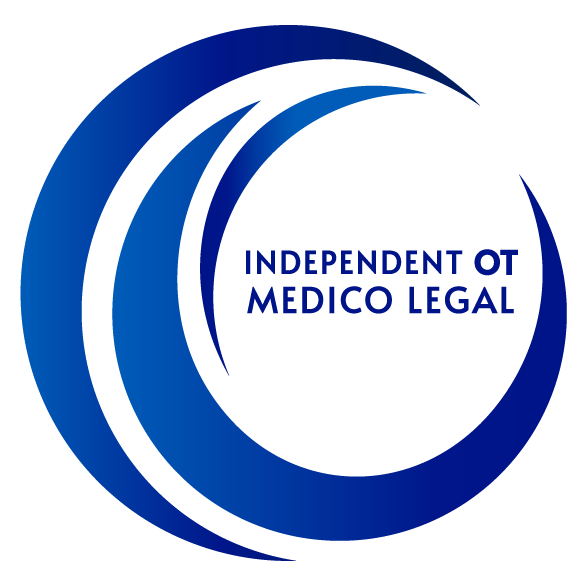Requesting a medico-legal report may seem straightforward, but we regularly see practitioners and legal professionals making critical errors that delay proceedings and impact outcomes. These mistakes not only waste valuable time but can also compromise the effectiveness of the report in legal settings.
Understanding exactly what information to provide and how to frame your request can make the difference between receiving a comprehensive, court-ready report and one that falls short of requirements. Common pitfalls include providing insufficient background information, unclear instructions about assessment focus, and unrealistic timeframe expectations.
We’ve compiled this guide based on our extensive experience providing independent medico-legal assessments in Western Australia and beyond. By addressing these common mistakes early in the process, we can help ensure our reports meet the highest standards for court admissibility while providing the specific insights needed for your case.
Frequent Errors in Medico-Legal Report Requests
Requesting medico-legal reports involves several critical steps that can significantly impact case outcomes. We’ve identified four common mistakes that frequently compromise the quality and usefulness of these important documents.
Insufficient or Ambiguous Instructions
Vague instructions are among the most problematic issues we encounter when receiving requests for medico-legal reports. Many solicitors provide only general guidance such as “please assess the client’s injuries” without specifying exactly what information they need.
Clear instructions should include:
- Specific questions that need answering
- Particular concerns relevant to the case
- Assessment requirements (functional capacity, future prognosis, etc.)
When instructions lack clarity, experts may miss crucial elements or focus on irrelevant details. This often necessitates supplementary reports, causing delays and additional costs.
We recommend providing a structured brief with itemised questions. This approach ensures all relevant matters are addressed comprehensively and accurately, enhancing the report’s value in legal proceedings.
Incomplete Medical Documentation
Failing to supply comprehensive medical records is a frequent oversight that significantly undermines report quality. We regularly receive requests with partial histories, missing diagnostic results, or outdated information.
The consequences of incomplete documentation include:
- Delayed assessments while awaiting additional records
- Reports based on insufficient evidence
- Potentially inaccurate conclusions that don’t withstand scrutiny
Best practice involves creating a chronological index of all relevant records before submission. This should cover the client’s complete medical history relating to the matter, including GP notes, specialist consultations, hospital admissions, and all imaging and test results.
We also recommend highlighting critical entries that directly relate to the matter at hand. This enables the expert to quickly identify pivotal information while still having access to the complete context.
Failing to Specify Legal Context
Many requests overlook the importance of detailing the specific legal framework within which the report will be used. Without understanding the relevant legislation or case law, experts may produce reports that fail to address key requirements.
Different legal contexts require different approaches:
| Legal Context | Specific Requirements |
| Workers’ compensation | Whole person impairment ratings, capacity for pre-injury duties |
| Motor vehicle accidents | Causation analysis, future care needs, threshold injury assessments |
| Medical negligence | Standard of care evaluations, causation opinions |
| Public liability | Risk assessments, preventability analysis |
Providing the expert with relevant legal tests, thresholds, or statutory definitions ensures the report directly addresses the pertinent legal issues. This significantly enhances its persuasiveness and utility in proceedings.
Unrealistic Timeframes
Setting inadequate timeframes is a common problem that could potentially compromise report quality. We frequently receive urgent requests expecting comprehensive assessments within days or weeks.
Quality medico-legal reports require:
- Thorough review of often voluminous records
- In-depth client assessments
- Literature research on specific medical issues
- Careful report drafting and review
Rushed timeframes typically result in superficial analyses, overlooked details, and poorly substantiated opinions. These shortcomings can severely impact the report’s credibility during cross-examination.
We suggest allowing at least 6 weeks for standard reports involving personal injury matters arising from medical negligence, motor vehicle accident, workplace injuries etc. However, it should be noted that at Independent OT Medico Legal turnaround times are typically lower for NDIA appeals (2-3 weeks post-assessment) and mesothelioma cases (1 week post-assessment).
When urgent reports are genuinely needed, we recommend specifying which issues require immediate attention while allowing more time for comprehensive analysis.
Implications of Mistakes in the Request Process
Mistakes during the medico-legal report request process can have far-reaching consequences beyond simply delaying the document. These errors can affect case outcomes, compromise healthcare decisions, and potentially lead to significant legal and financial repercussions.
Delayed Legal Proceedings
Errors in medico-legal report requests frequently result in procedural delays that affect all parties involved. Courts and tribunals operate on strict timelines, and postponements due to incomplete or inaccurate reports can extend cases by weeks or months.
These delays often translate to increased legal costs related to additional court appearances and legal preparation. For claimants awaiting compensation, these setbacks can create significant financial hardship, especially for those unable to work due to their condition.
Best Practices for Securing Comprehensive Reports
Obtaining a high-quality medico-legal report requires careful planning and clear communication. The following practices can significantly improve the quality and usefulness of reports while avoiding common pitfalls that lead to delays or inadequate assessments.
Clear Communication with Medical Practitioners
We recommend establishing direct communication with the medical or allied health practitioner early in the process. A brief initial conversation can clarify expectations and timeframes, ensuring both parties understand what’s required.
Always provide contact details for follow-up questions the practitioner might have. This prevents delays caused by practitioners needing to seek clarification through formal channels.
Be explicit about deadlines and explain their significance to your case. Medical practitioners often juggle multiple commitments, so reasonable notice—typically 4-6 weeks—is essential for thorough assessments.
Consider using a standardised request form that covers all necessary information. This helps practitioners understand exactly what’s needed and reduces the likelihood of misunderstandings.
Providing Detailed Case Background
Comprehensive background information forms the foundation of an accurate medico-legal report. Include all relevant medical records, diagnostic imaging reports, and previous specialist opinions related to the condition.
Highlight key events in chronological order, particularly for complex cases with multiple injuries or treatments. This timeline helps practitioners understand the progression of the condition.
Be transparent about pre-existing conditions that might be relevant to the assessment. Attempting to withhold such information often backfires when discovered later.
Supply workplace information if the assessment relates to occupational injuries, including job descriptions, physical requirements, and workplace hazards.
Remember that insufficient background information is one of the most common reasons for delayed or inadequate reports.
Clarifying the Scope of the Report
We find that precisely defining the scope prevents misaligned expectations. Clearly state whether you need a comprehensive assessment or focused opinion on specific aspects of the case.
List explicit questions you need answered. Instead of vague requests, ask specific questions like “What is the functional impact of this injury on the client’s ability to perform their pre-injury occupation?”
Clarify whether you need an impairment assessment, future treatment recommendations, or prognosis information. Each requires different approaches from the practitioner. It is also important in an occupational therapy report request to clarify if you require discussion surrounding any past gratuitous or commercial care provided.
Discuss any legal thresholds or standards that might apply to your jurisdiction. Different legal contexts require different assessment approaches, particularly for impairment ratings.
Contact Independent OT Medico Legal Today to Find Out More
At Independent OT Medico Legal, we specialise in providing high-quality medico-legal reports and assessments throughout Western Australia. Our experienced team understands the intricacies involved in these specialised reports.
We’re committed to helping legal professionals, insurance companies and case managers navigate the complexities of medico-legal documentation. Our reports are thorough, objective and delivered within agreed timeframes.
Our consultants are available for appointments Monday to Friday, 9:00am to 5:00pm. We also offer flexible arrangements for urgent cases when required.
Don’t let common reporting mistakes impact your case outcomes. Our team can guide you.
Further Reading
How OT Medico Legal Reports Help With NDIA Appeals
Determining the Functional Impact of Motor Vehicle Accidents with OT Assessments




